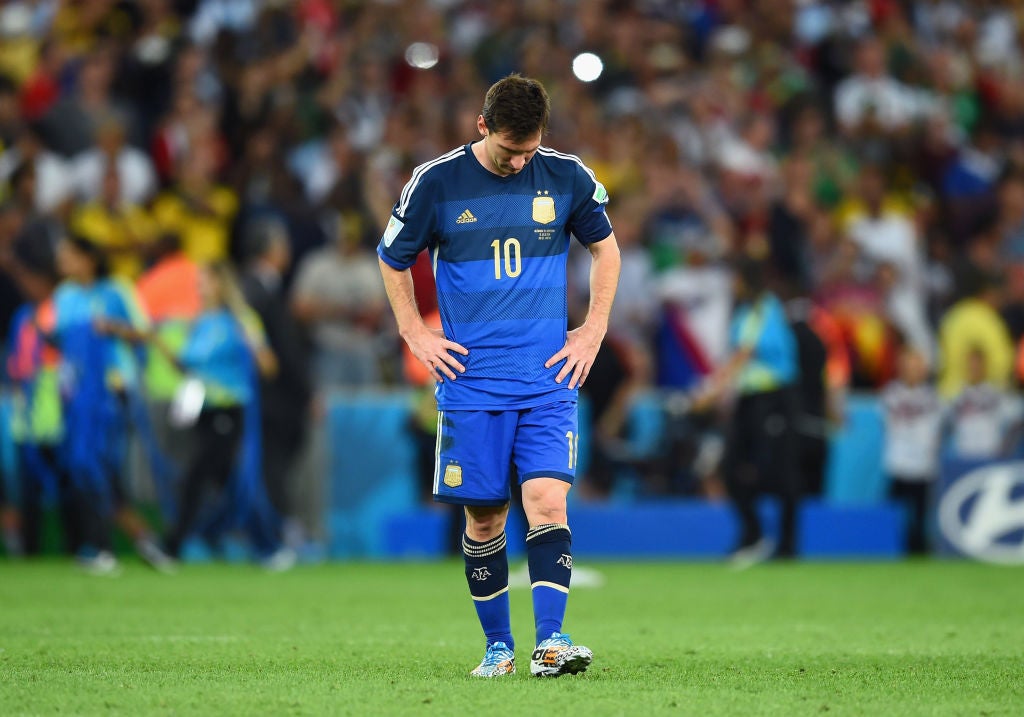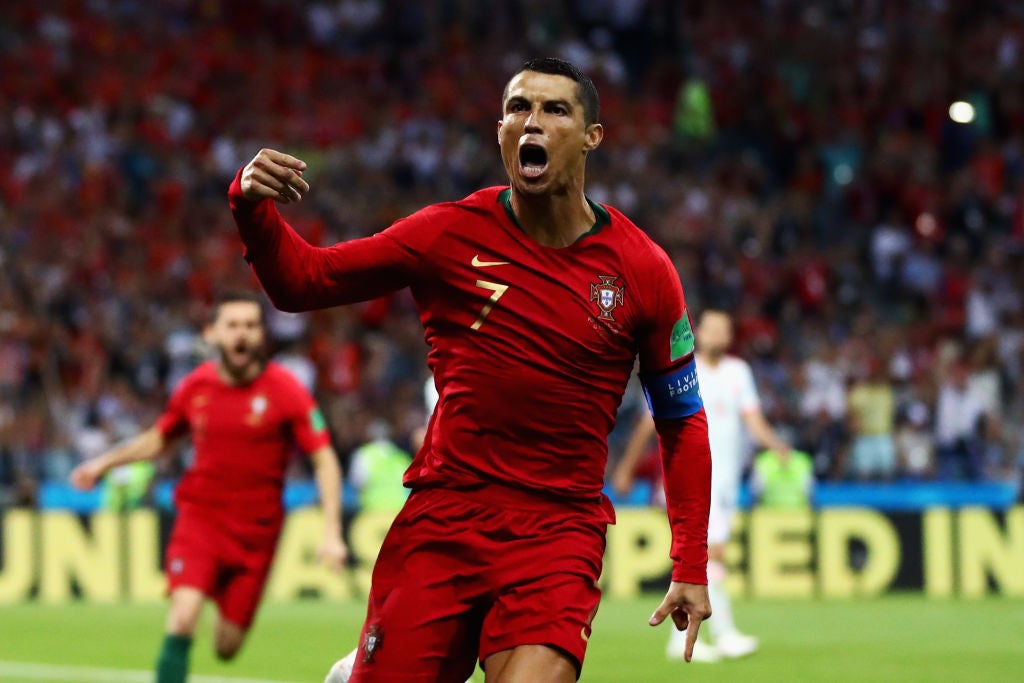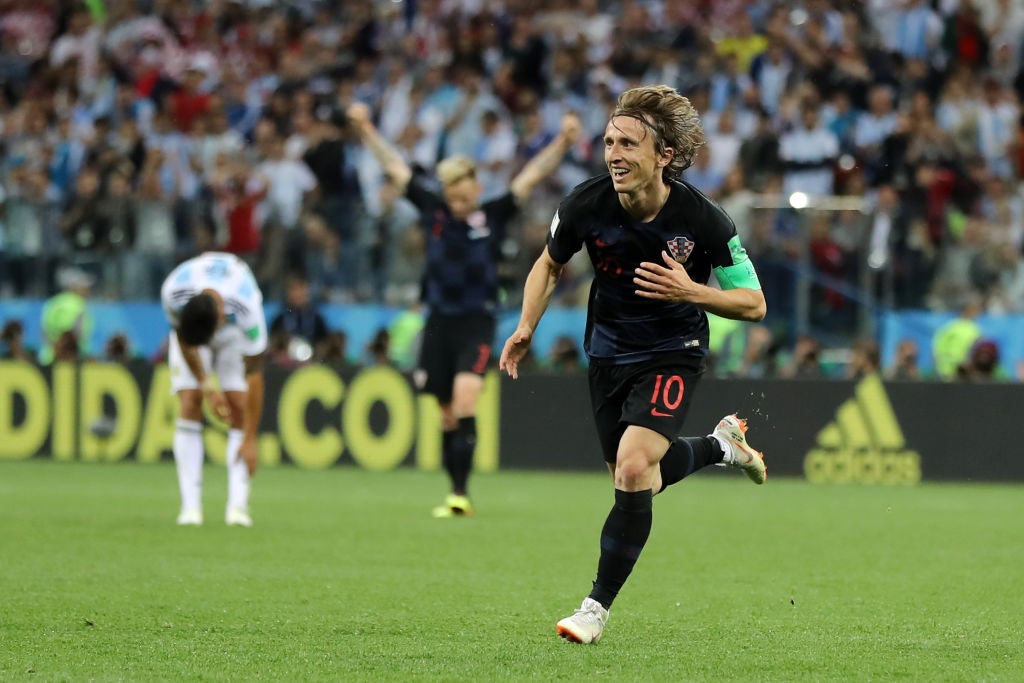Lionel Messi, Cristiano Ronaldo and the World Cup stars with one last shot at glory
The 2022 World Cup will bring the curtain down on a golden generation of international footballers – and for many it will be a painful goodbye

Your support helps us to tell the story
As your White House correspondent, I ask the tough questions and seek the answers that matter.
Your support enables me to be in the room, pressing for transparency and accountability. Without your contributions, we wouldn't have the resources to challenge those in power.
Your donation makes it possible for us to keep doing this important work, keeping you informed every step of the way to the November election

Andrew Feinberg
White House Correspondent
First there was the Mexican goalkeeper Antonio Carbajal. Then, after a long wait, Lothar Matthaus joined him in an exclusive club. A second Mexican, Rafael Marquez, became a third member. There is a case for saying Gianluigi Buffon had beaten him to that, though an unused squad member in 1998 only actually took the field in four World Cups.
But, after only three footballers played in five World Cups in the tournament’s first 90 years, there could be three in three days. One is Andres Guardado, a reminder never to underestimate Mexico’s capacity to take hardy perennials to multiple World Cups. And, with a certain inevitability, the other two, forever twinned in the imagination, invariably pitted against each other in this team sport’s most enduring individual rivalry, are Lionel Messi and Cristiano Ronaldo.
Each first played and first scored in the 2006 World Cup. And while it is not beyond the realms of possibility – each has made a career of being the exception to the norm – that they could be back in 2026, Messi has said that this will “surely” be his final World Cup. He has rescinded his international retirement in the past, whereas the probability is that Ronaldo will have to be dragged screaming from the stage, perhaps complaining to Piers Morgan that he has been betrayed. He has voiced an ambition to play at Euro 2024 but even he may deem the next World Cup, when he will be 41, a tournament too far.
For one, at least, there is the chance to shape a perfect goodbye; given Argentina’s status among the favourites, probably for Messi. It would be a subplot in what would seem the culmination of a career but he could pass Matthaus’s record of 25 appearances in World Cups in the final (at the other end of the spectrum, Carbajal’s record of playing in five World Cups and going out in the group stages in each may last for decades more).

Yet while Messi and Ronaldo have a proven propensity to overshadow everyone else, the reality is that this will be a last World Cup for many another thirty-something. For plenty of other who have helped shape a generation, this is a last chance on this stage: a first one, too, for Gareth Bale.
The probability is that no one will make as explosive an exit as Zinedine Zidane, sent off in the World Cup final, his last action on a pitch being to headbutt Marco Materazzi, but disappointment will accompany some through the departure lounge. Some are already in decline, others staving it off. Most have left an imprint on the World Cup, but without actually winning it.
Luka Modric was given the Golden Ball as the 2018 competition’s outstanding individual (Messi was his 2014 counterpart, even as Javier Mascherano was arguably Argentina’s best player). The Real Madrid playmaker is another survivor from 2006, though Croatia’s failure to qualify in 2010 means his streak of World Cups is interrupted. His passing can feel timeless, but the quintuple Champions League winner has said this will be his last international tournament.
Kevin De Bruyne is six years his junior but has admitted there is no guarantee he will be back in 2026. Certainly many of Belgium’s golden generation are unlikely to return: Jan Vertonghen, Toby Alderweireld, Dries Mertens, Axel Witsel and even Eden Hazard are all older than De Bruyne.

And all are younger than Pepe. Some would miss his cartoon brand of villainy, but the defender means Ronaldo is not Portugal’s oldest player. If Pepe’s World Cup experiences feel defined by his headbutt on Thomas Muller in 2014, he is not the only one with a chequered past bowing out. Think of Luis Suarez on the global stage and his impromptu display of goalkeeping against Ghana in 2010 comes to mind, but the red card he collected meant he missed Uruguay’s only semi-final since 1970, while his 2014 World Cup was notable for biting Giorgio Chiellini. For Suarez and Edinson Cavani, the two highest scorers in La Celeste’s history, and Diego Godin, their most-capped player, this should be the end of an era.
None is the most senior of the South American contingent, a title that – like the tag of the player who has won most official trophies in footballing history – rests with 39-year-old Dani Alves. The World Cup is the major one that has eluded him and Thiago Silva, a year Alves’s junior and, unlike him, a certain starter. That Silva was suspended for 2014’s 7-1 humiliation by Germany and Alves an unused substitute gives each an added incentive. At least, unlike several of their teammates, they are old enough to remember Brazil’s triumph in 2002.

But there are others with unfinished business on this stage and a lone chance to complete it. Angel Di Maria was outstanding in 2014, but injured in the quarter-final and deprived of an opportunity to be decisive thereafter. Robert Lewandowski has scored 634 goals for clubs and country but none have been in a World Cup. Karim Benzema missed France’s 2018 glory, which came during his international exile.
The new Ballon d’Or winner finds himself in the same camp as his predecessors, in a tournament that will have the winners for the last 14 years, plus Lewandowski, who would almost certainly have triumphed in 2020 had the award been given. That Fabio Cannavaro, in 2006, was the last player to win both the World Cup and the ultimate individual accolade represents a shift in the status of the club game and, arguably, a downgrading of international football.
That Ronaldo, Messi, Modric, Lewandowski and Benzema are all in a last quest for what nevertheless still feels the most prestigious prize guarantees some goodbyes will be painful. For a select few, they may not be. This could be the last hurrah for the 2018 champions Hugo Lloris and Olivier Giroud, the 2014 victors Manuel Neuer and Muller and the 2010 winners Sergio Busquets and Jordi Alba. Each will go with a distinction denied to some of his generation’s greats: he will have lifted the World Cup.
Subscribe to Independent Premium to bookmark this article
Want to bookmark your favourite articles and stories to read or reference later? Start your Independent Premium subscription today.



Join our commenting forum
Join thought-provoking conversations, follow other Independent readers and see their replies
Comments